Four tips for better recycling at Christmas
- Published
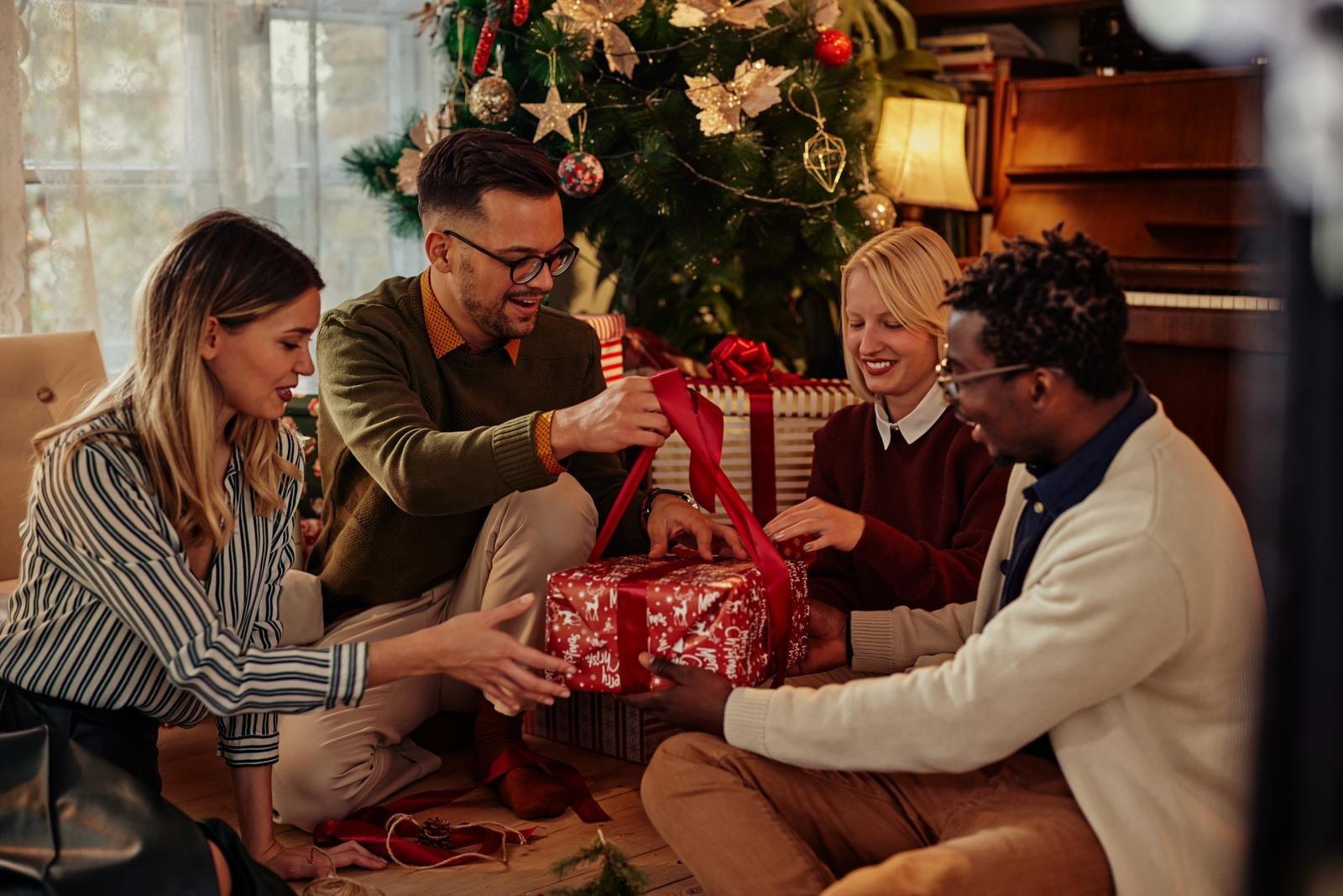
The British Christmas Tree Growers Association estimates that six to eight million real Christmas trees are sold in the UK each year.
'Tis the season to be jolly - but the sheer volume of stuff we throw away during the festive period is no-one's idea of fun.
Household waste typically increases at Christmas by around 30%, including cardboard, bottles or trees.
So how can you celebrate while doing less harm to the planet?
Here are four recycling and waste tips for having a more eco-friendly Christmas.
1. Know your wrapping and packaging
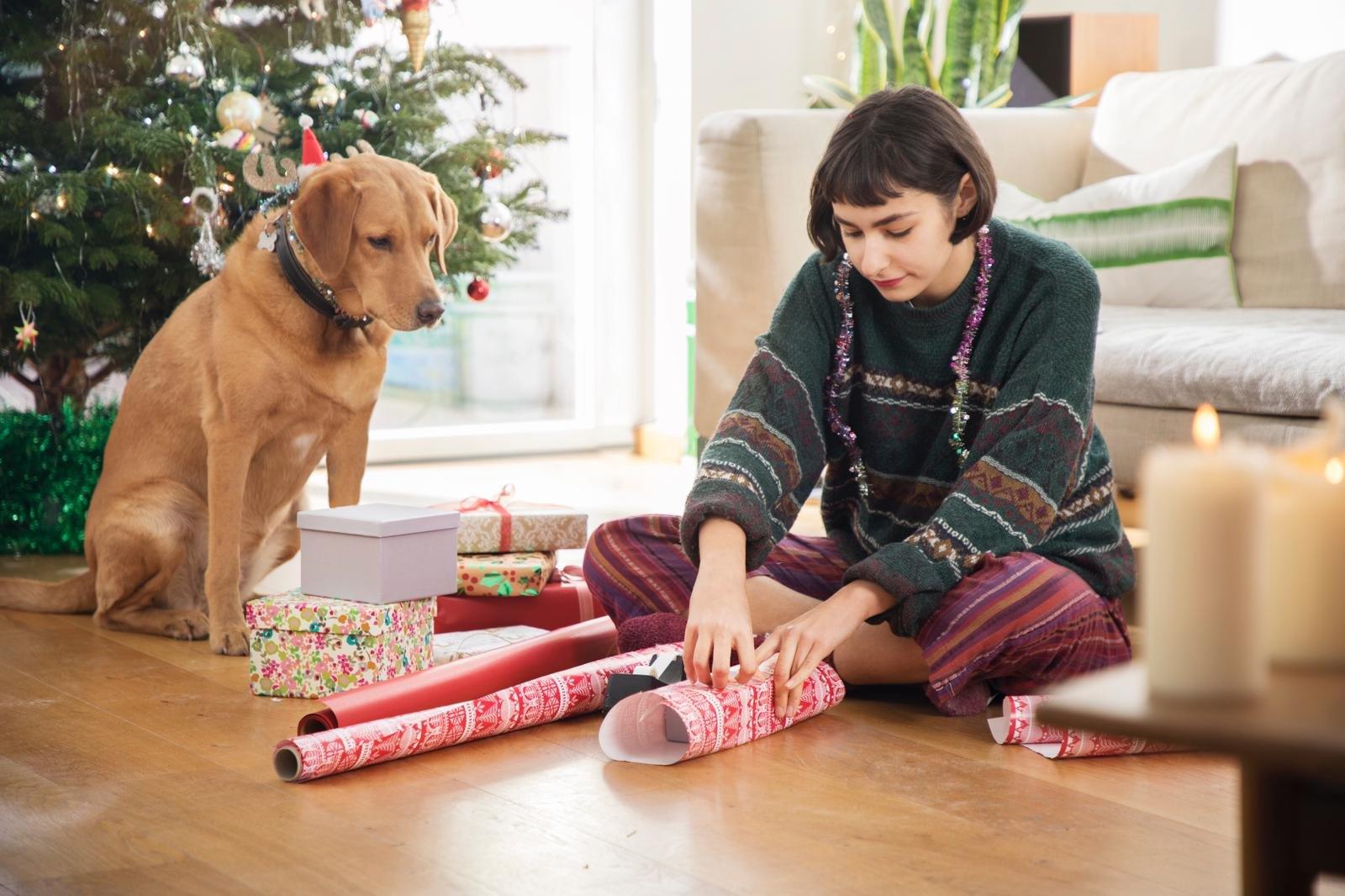
We throw away an estimated 227,000 miles of wrapping paper each year at Christmas in the UK, according to waste management company BIFFA
Not all wrapping paper will be accepted by recycling centres as it may contain plastic film or metallic elements, according to environmental charity WRAP.
There is a simple test that you can do to see if your wrapping paper can be recycled: crumple it into a ball. If it stays ball-shaped, it can likely be recycled. But if it springs back, it probably contains plastic and can't be recycled. Tissue doesn't tend to be recyclable because of the short fibres, and the same goes for tissue-like wrapping paper.
Make sure to remove ribbons, bows, batteries, sticky tape and other accessories before putting things in the recycling bin.
Even better, don't throw the paper away, save it for next year's gifts. If following this route, you're going to have to be very careful unwrapping - admittedly a near impossibility for excited little hands on Christmas morning. (Also you might want to make notes to avoid gifting your aunt back her own wrapping paper next year!)
Cardboard is recyclable but as with wrapping paper, remember to remove any tape, plastic or polystyrene inserts. Some boxes also have a glossy or waxed plastic film over them which makes them non-recyclable.
Flatten and squash boxes to make more room in your recycling bin, bag or box.
Empty and rinse bottles. Leftover foods or liquids can contaminate other recyclables and if bottles contain liquid they may not be recycled as deemed too heavy by the automated sorting process. Liquid can also damage the machinery. Leave on labels - these will be removed in the process, and squash down bottles to save space. Leave lids attached as this will ensure the lid is recycled along with the bottle.
You can check exactly what can and can't be recycled in your area using Recycle Now's Recycling Locator, external.
2. Get smart with leftovers
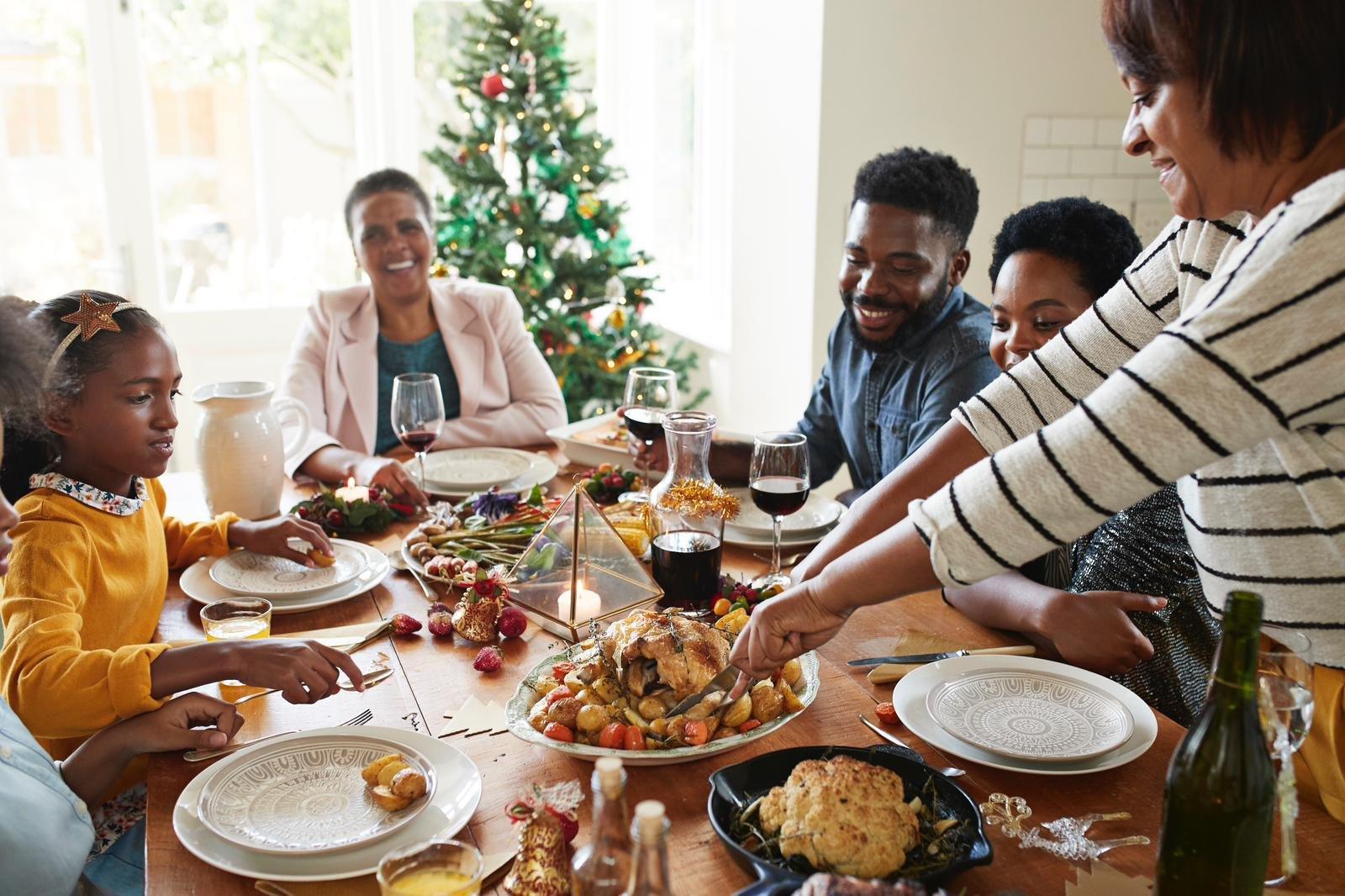
Poultry is one of the top ten most wasted foods in the UK, 100,000 tonnes ends up in the bin every year
Approximately 6.6 million tonnes of food go to waste from our homes each year in the UK, costing households around £14 billion a year, or the average family £730, according to WRAP.
It says the amount of poultry thrown away in one year could make 800 million Boxing Day curries. And the amount of carrots thrown away every year by UK homes could feed Santa's nine reindeers a carrot a day for nearly 500,000 years.
Try to put leftover turkey in the fridge as soon as you can. It can be stored for up to two days, according to most recommendations. However, a large bird can take longer than that to eat, particularly if you feel you need a turkey break. Perhaps freeze what's left over and defrost either in the fridge or using the microwave on the defrost setting directly before re-heating. See the UK Food Standards website for specific turkey food safety tips., external
Leftover Christmas pudding will usually keep for up to two weeks if refrigerated, according to Nigella Lawson's website, external, while US nutrition website Eat Right says that you can keep stuffing in the fridge for up to three or four days, external. Cooked pigs in blankets should be fine for a week, according to US government recommendations for chilling sausages and bacon, external.
The obvious way to waste less food is to simply buy and cook less of it. A Which? survey revealed that the top foods people buy too much of at Christmas, external are cheese, biscuits, chocolate, alcohol and vegetables.
Use Love Food Hate Waste's annual Ultimate guide to Christmas food planning., external to find recipes for leftovers and for tips on how to freeze and reuse uneaten items to minimize your food waste this year.
3. What about the tree?
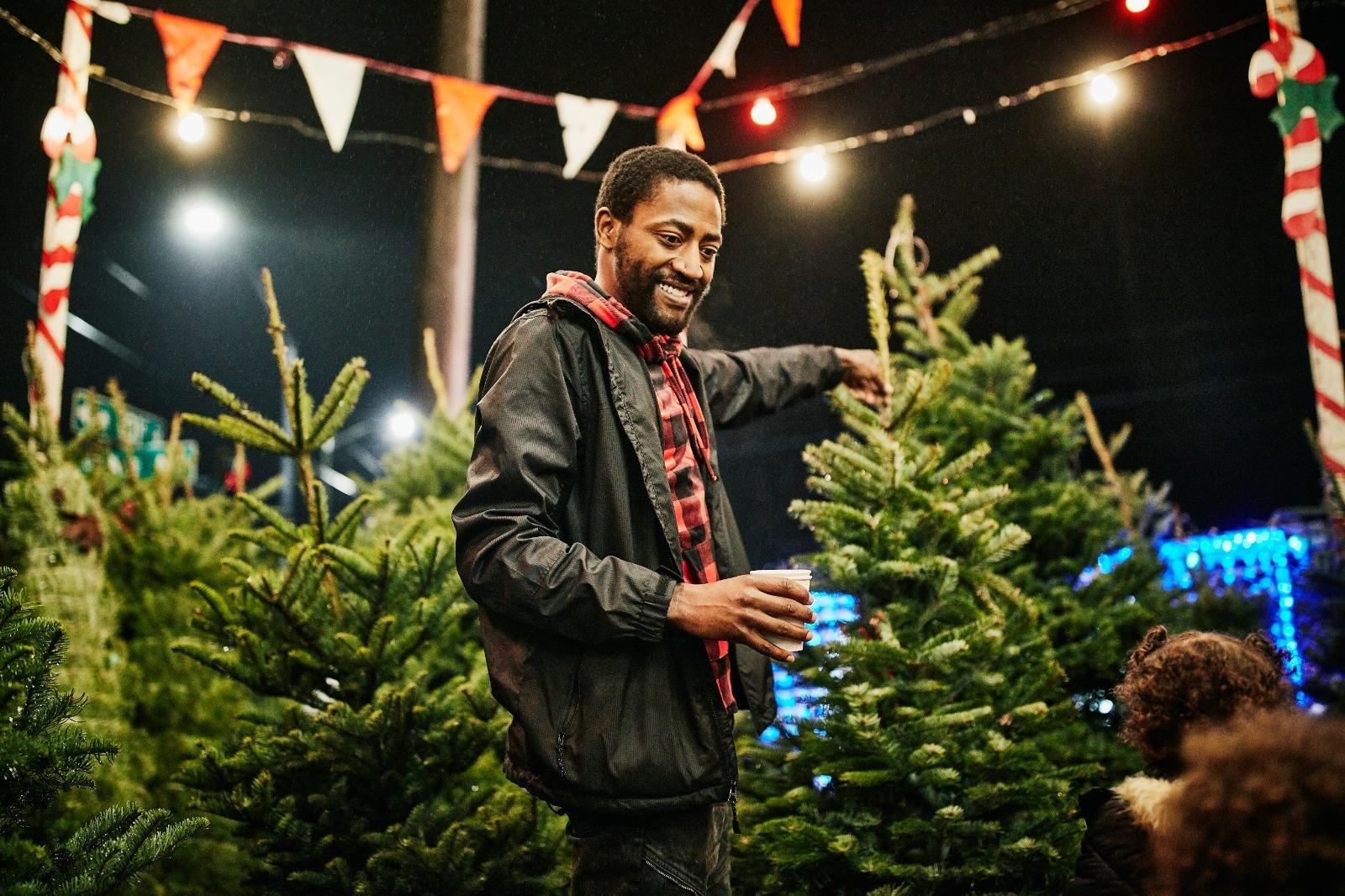
The Carbon Trust estimates that for a two metre real Christmas tree with no roots, the carbon footprint is equivalent to 16kg of greenhouse gas emissions if it ends up in landfill
If you buy a tree that still has its roots attached, you can plant it in your garden if you have one (although obviously beware they will continue to grow, sometimes very quickly) or put it back outside and bring it back in next year. The RHS recommends not keeping a potted tree indoors longer than 12 days and has some great tips on caring for one, external.
If you've bought a cut tree that no longer has its roots, your local council is likely to have a collection point, or may even pick up your tree from your home in the New Year. Check your local council website. Trees can be recycled into wood chips or shredded and composted. Tinsel and baubles generally aren't recyclable.
Artificial trees can't be recycled, but can be re-used so if you don't want to keep it for next year or don't have room for it, charities and care homes may take them if they're in good condition.
4. Choose Christmas crackers wisely
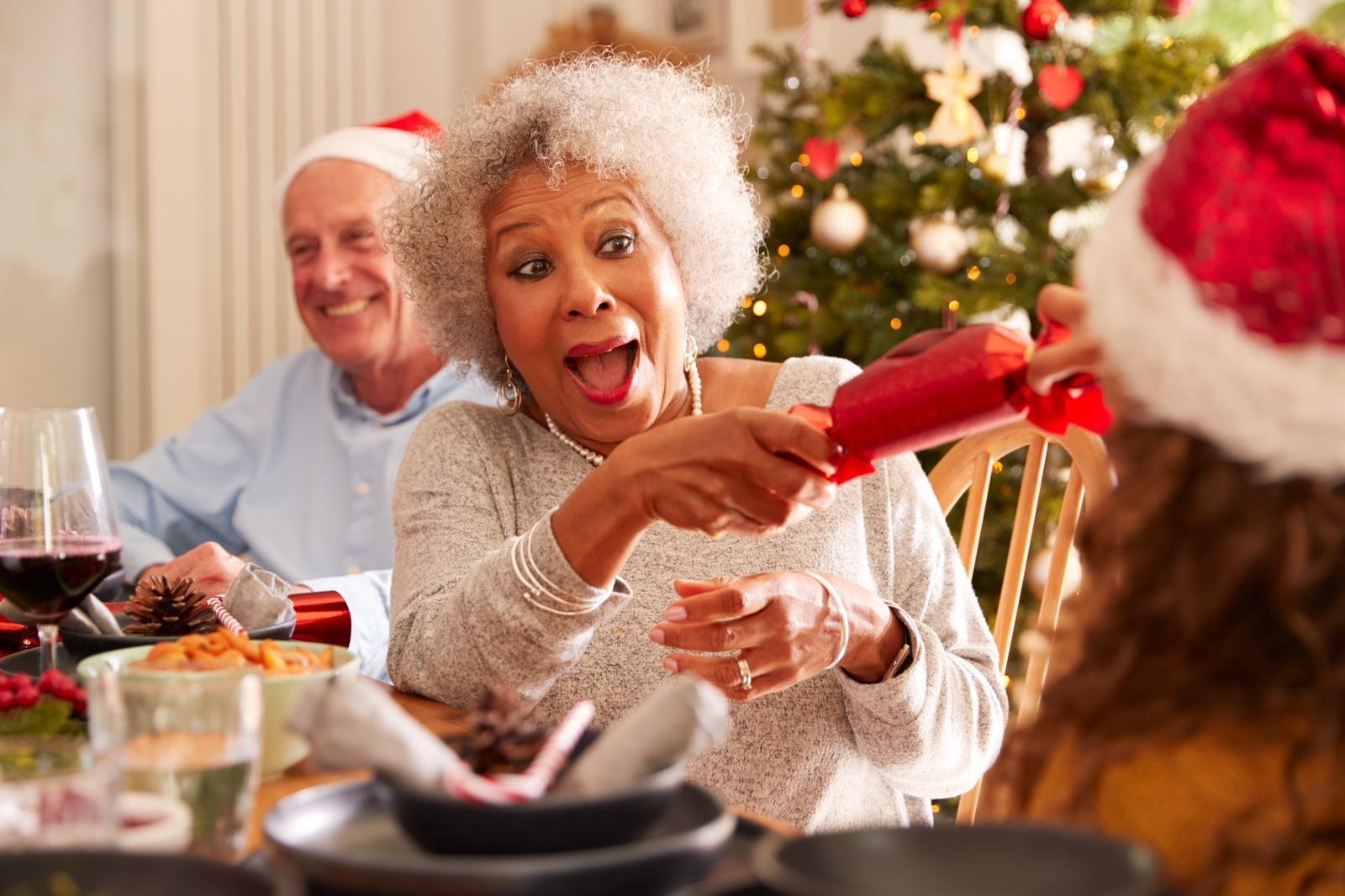
London-based baker Tom Smith patented the first Christmas cracker in 1847 according to the Victoria and Albert Museum. Now a fixed feature of most festive dinner tables, more than 150 million were reportedly sold in 2017.
But each set comes in its own cardboard and plastic packaging. Many contain hard-to-recycle materials such as glitter, and of course there are the small plastic knick-knack 'surprises' they contain. When choosing your Christmas crackers think about what's inside to avoid sending more plastic rubbish into landfill.
Unless stated as recyclable, party hats are probably not suitable for recycling, according to Zero Waste Scotland, external, for the same reasons as tissue paper.
The paper strips that go bang when you pull them across a table should be, although it's probably worth cutting off the bit coated with gunpowder. (If you fancy geeking out on the science behind a cracker's bang, the Open University can help., external)
Try to buy recyclable Christmas crackers with paper hats and gifts that will last - there are many on the market - or even better buy make-your-own crackers kits or even get creative with loo rolls.
One consolation - the Dad jokes on little slips of paper might be awful but are likely recyclable so at least you can bin them knowing you aren't hurting the planet.